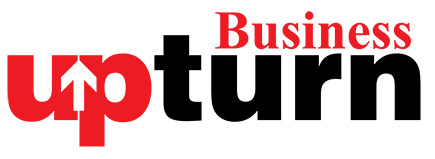In today’s competitive business climate, maintaining a healthy cash flow is paramount. Despite best efforts, businesses often face the daunting challenge of overdue accounts — an area where professional collection agencies can play a crucial role. Understanding how these agencies operate and why they are essential can fundamentally enhance your business’s financial health.
What Is a Collection Agency?
A collection agency is a business that specializes in recovering funds that are due from customers but have not been paid. Essentially, they step in when traditional attempts to collect payment have failed, using specialized tools and techniques to secure payment on behalf of their clients.
How Collection Agencies Operate
Initial Assessment and Data Collection
When a business decides to engage a collection agency (in Dutch: incassobureau), the first step is usually an assessment of the claim. This involves reviewing the account details, the history of the debt, and previous collection attempts. The agency will also gather as much information as possible about the debtor, which can aid in the collection process.
Communication and Negotiation
Communication is a fundamental tool used by collection agencies. They begin by contacting the debtor to inform them of the outstanding debt and attempt to negotiate a resolution. This communication can be via letters, emails, or phone calls. Agencies are trained to handle these communications tactically to maintain professionalism and compliance with regulations.
Utilizing Technology
Modern collection agencies use advanced technology to streamline their processes. This includes automated systems for tracking communications and payments, databases for recording debtor information, and analytical tools to determine the most effective collection strategies.
Legal Action
If negotiations do not yield results, a collection agency may advise their client on legal avenues. For serious cases, agencies can seize (in Dutch: beslaglegging) assets after obtaining the appropriate legal permissions. This step is usually the last resort due to the potential costs and time involved.
Why Collection Agencies Are Essential for Your Business
Improved Cash Flow
By effectively recovering unpaid debts, collection agencies improve your business’s cash flow. This enhanced liquidity can be crucial for day-to-day operations and for funding new ventures.
Focus on Core Business Activities
Debt collection can be time-consuming and stressful. By outsourcing this function to a dedicated agency, your business can focus on core activities, such as product development, customer service, and expansion strategies.
Legal Compliance
Debt collection is governed by various laws that protect the rights of debtors. Professional collection agencies are well-versed in these regulations and ensure that all collection practices are compliant with national and international laws, thus shielding your business from potential legal consequences.
Expertise and Efficiency
Collection agencies bring years of experience and expertise to the table. They know the most effective strategies and legal methods to employ in different scenarios, which can greatly increase the likelihood of debt recovery.
A Pivotal Role
The role of a collection agency is pivotal in ensuring that businesses can reclaim debts that might otherwise remain unpaid. These agencies not only bring expertise in debt collection laws and strategies but also relieve businesses of the burden of debt recovery, allowing them to focus on growth and operations. In a challenging economic landscape, having a reliable collection agency by your side can make a significant difference in maintaining the financial health and stability of your business.
As businesses grow, the volume and complexity of accounts receivable can increase. Professional collection agencies have the scalability to manage large volumes of debt and the ability to adapt their strategies as your business and customer base evolves. This adaptability is crucial in maintaining an efficient collections process as your organizational demands and dynamics shift.


